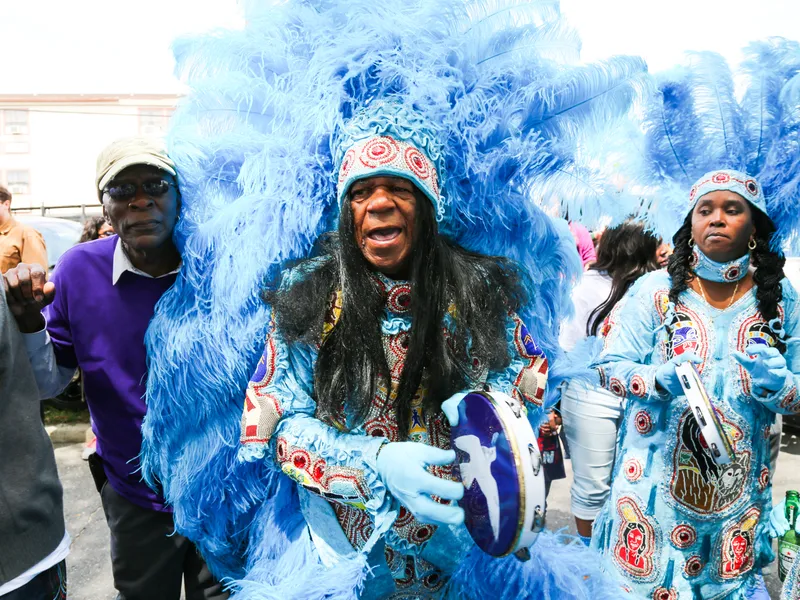By Maxim Elramsisy | California Black Media
Rae Benjamin, a Los Angeles resident and writer for the Netflix series “The Witcher,” is among more than 11,000 members of the Writers Guild of America (WGA) participating in a strike that has disrupted film and television production.
For almost a week now, writers have been picketing major studios in Los Angeles and New York City, after failing to reach a new contract agreement with the Alliance of Motion Picture and Television Producers (AMPTP).
The writers’ contracts expired on May 1 and negotiations with the Film and Motion Picture Association (FMPA) have not resulted in an agreement.
“For me, streaming residuals are really important,” stated Benjamin, one of the few Black writers in the union.
“Whenever they re-air an episode television writers would get a check based upon that,” she explained. “When network shows were the only options, content was constantly re-aired, and it really rewarded people who worked on a popular show. You could be making money from that show, years and years later, because it’s in syndication.”
Benjamin says the compensation structure is different for streaming companies like Netflix.
“They refuse to release data on how many people actually watch your shows, even though it’s easy to do. Because they’re refusing to do that we could not get accurately paid for our work. We can’t get paid the residuals and streaming that we’re owed,” she said.
In the past decade, streaming platforms, particularly Netflix, have disrupted the traditional cable television model by producing new shows with shorter seasons in an effort to attract new subscribers.
Last week, the AMPTP offered annual salary increases for writers and made other concessions, but the WGA has yet to respond to the proposal.
“When you see what was put on the table, and then you see that the producers negated most things, even proposals such as making sure that we’ll have jobs and not robots take our jobs, and there’s no proposal for that No. counter for that,” said Benjamin. “It’s a little scary to think that, hey, there’s an AI that might be able to write your entire show, and no one seems to be fretted about that at all.”
In a statement, AMPTP acknowledged that the emergence of Artificial Intelligence technology “requires a lot more discussion.”
“AI raises hard, important creative and legal questions for everyone. For example, writers want to be able to use this technology as part of their creative process, without changing how credits are determined, which is complicated given AI material can’t be copyrighted, the statement reads.
WGA’s proposal stipulated, “AI can’t write or rewrite literary material, can’t be used as source material; and MBA (Minimum Basic Agreement) covered material can’t be used to train AI.” AMPTP rejected the offer and countered with an offer of “annual meetings to discuss advancements in technology.”
AMPTP did not make a counteroffer regarding proposals about duration of employment, which the writers say is too short and akin to freelance work.
“On network shows we would typically be employed for a long time, because there were more episodes. It would be 20 to 30 episodes of the show, which means you were employed 40 to 45 weeks out of the year,” said Benjamin. “We would just take a break in between seasons and come back. So being a writer was a very stable career. Now, because of extremely short orders of streaming shows, it’s become more unstable. Worse than that, these companies don’t want to hire people for a reasonable amount of time to complete a show.”
Benjamin says showrunners and show creators cut corners by hiring writers for a short time then build on their work with rewrites and edits.
“The actual writers get a job for two weeks, which is very little pay,” she said. “I think it also disproportionately affects Black creatives, because a lot of times they’ll hire us to do the cheapest amount of labor.”
West Hills-based writer Sid Quashie told the Los Angeles times he made $250,000 for a script he sold to Walt Disney Studios in 2003. Sixteen years later in 2019, when he sold a script to Netflix, he made under $100,000.
In 2007, the WGA went on a 100-day strike that cost the city of Los Angeles an estimated $2.1 billion and countless jobs as all corners of the industry and others adjacent to it were impacted.
Only one week into the 2023 strike, there are already casualties. Late night shows were canceled abruptly. Daily shows stopped. Productions for all shows are tenuous, with many on pause.
Gov. Gavin Newsom and Mayor Karen Bass, who have received support from both sides of the dispute, have expressed their concerns and are advocating for a resolution.
Newsom said Tuesday at the Milken Institute Global Conference that the work stoppage “has profound consequences direct and indirect. Every single one of us will be impacted by this, and we’re very concerned about what is going on because both sides are dug in. The stakes are high.”
“Los Angeles relies on a strong entertainment industry that is the envy of the world while putting Angelenos to work in good middle class jobs. I encourage all sides to come together around an agreement that protects our signature industry and the families it supports,” Mayor Bass said.
In the short term, streaming platforms with more scripts banked may have an advantage, as they can continue their productions. Daily and weekly cable shows are at the greatest risk. During the last writer strikes, the producers turned to unscripted content, leading the creation of the reality show Cops and even The Celebrity Apprentice.
The Directors Guild and Screen Actors Guild are also in negotiations, with contracts set to expire at the end of June.
 Westside Story Newspaper – Online The News of The Empire – Sharing the Quest for Excellence
Westside Story Newspaper – Online The News of The Empire – Sharing the Quest for Excellence




